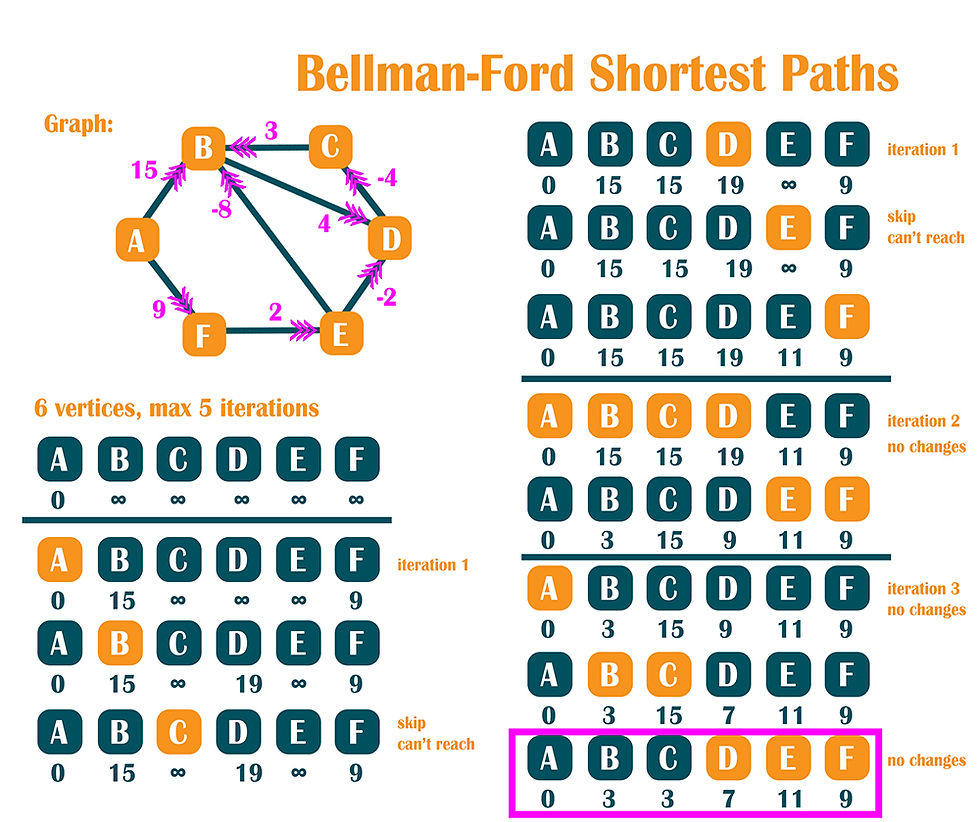Bellman-Ford's shortest paths Algorithm in C++
- oanaunciuleanu

- 29 apr. 2020
- 2 min de citit

Using this algorithm, we find the shortest path from a node to all the other nodes in a weighted directed graph. It works with negative values of weights also as with positive values.
// Bellman-Ford's shortest paths algorithm.
#include <bits/stdc++.h>
using namespace std;
// define the global variables
#define Vertices 6
#define Edges 8
#define MAX 100000
int* BellmanFord(int graph[][3],int vertices, int edges, int startIndex)
{
static int distances[Vertices];
for (int i = 0; i < vertices; i++)
{
// initialize all distances to a large number, plus infinite
distances[i] = MAX;
}
// The distance from start to start is 0
distances[startIndex] = 0;
// We need maximum of Vertex - 1 iterations
for (int i = 0; i < vertices - 1; i++)
{
for (int j = 0; j < edges; j++)
{
if (distances[graph[j][0]] + graph[j][2] < distances[graph[j][1]])
{
distances[graph[j][1]] = distances[graph[j][0]] + graph[j][2];
}
}
}
// Check if there are cycles
for (int i = 0; i < edges; i++)
{
int x = graph[i][0];
int y = graph[i][1];
int weight = graph[i][2];
if (distances[x] != MAX && distances[x] + weight < distances[y])
{
cout << "This graph contains negative weight cycles"<< endl;
}
}
return distances;
}
void printDistancesOfGrapf(int* arrayOfDistances, int vertices, int startIndex)
{
cout << "Distance from vertex " << char(startIndex + 65) << endl;
for (int i = 0; i < vertices; i++)
{
cout << char(i + 65) << ": " << arrayOfDistances[i] << endl;
}
}
int main()
{
int graph[][3] = { { 0, 1, 15 },
{ 0, 5, 9 },
{ 1, 3, 4 },
{ 2, 1, 3 },
{ 3, 2, -4 },
{ 4, 1, -8 },
{ 4, 3, -2 },
{ 5, 4, 2 } };
int startIndex = 0;
int* newdistances;
newdistances = BellmanFord(graph, Vertices, Edges, startIndex);
printDistancesOfGrapf(newdistances, Vertices, startIndex);
return 0;
}Distance from vertex A A: 0 B: 3 C: 3 D: 7 E: 11 F: 9

Comentarii